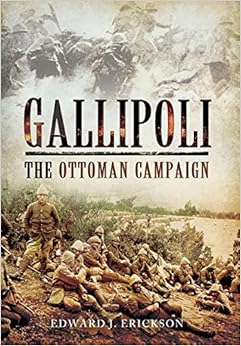Saint Augustine, Martin Luther and the Origins of WWI
By Edward J. Langer
On June 28, 1914, Archduke Franz Ferdinand and his wife Duchess Sophie were assassinated by Gavrilo Princip in Sarajevo, Bosnia-Herzegovina. Archduke Ferdinand was heir to the throne of Austria-Hungary. Gavrilo Princip was a member of the Serbian terrorist organization known as the Black Hand, a group who sought to separate Bosnia-Herzegovina from the Austrian-Hungary Empire and join it with Serbia (Servia).[1]
Austria reacted to the assassination by attempting to crush any and all Serbian nationalist movements. Serbia looked to Czar Nicholas II of Russia for protection. Austria-Hungary looked to Kaiser Wilhelm II of Germany for support. During the month following the assassination there was intense diplomatic activity by all the great powers in Europe to resolve differences between Serbia and Austria-Hungary and to avert another European war. All of this activity came to no avail as war erupted on July 28, 1914 between Serbia and Austria-Hungary.
This war could have remained localized to the region except for the involvement of Germany and Russia. Russia wanted to expand its influence in the area. To support Serbia and to meet any military threat along its borders with Austria, Russia ordered full mobilization of its army on July 30th. Germany mobilized its army the next day and declared war on Russia on August 1st. Since Russia was at war with Germany, France, under treaty, was obligated to declare war on Germany. Great Britain, under treaty to Belgium, was brought into the war after Germany marched through Belgium to fight France. And thus began the horror known as World War One.
ORIGINS OF WORLD WAR ONE
There are several theories on the origins of World War One. The first one, and the one most used, was the arms race, more specifically a dreadnaught race. In 1906, Great Britain launched the battleship HMS Dreadnaught. This ship made every ship in every navy immediately obsolete. For a country to prosper in the 20th Century, it needed colonies and a strong navy to protect trade routes. HMS Dreadnaught and her sister ships could easily threaten trade routes of other countries. To counter HMS Dreadnaught, other countries started their own battleship building program. But technology was a advancing rapidly. Newer ships on the drawing board would have improved armor, propulsion and guns. The race was on.
In addition to the naval race the various army units were updating their weapons with new breech loading rifles, artillery and especially machine guns, and they were developing new tactics. Unfortunately they envisioned a short conflict, so they only had 90 days worth of ammunition and supplies. It was supposed to be a splendid little war.
Second there was the need for an empire. Great Britain and France along with other European nations had already carved up the world and were prospering from international trade. Germany was left in the dust and had to struggle to piece together an empire. They took every opportunity including during the opening battles of the Spanish American War. After Dewey had defeated the Spanish fleet in Manila, Germany sent a powerful surface force into the Philippines to “investigate”. The victorious American fleet was short on ammunition and could not defeat this German force if a battle broke out. Fortunately, the arrival of some British ships stopped any aggression by the German fleet.
Finally, there is the continuing problems in the Balkans. The various ethnic groups were always squabbling among themselves and to add to the misery of the people, they were constantly annexed by powerful neighbors.
All of these causes do not conflict with each other but instead supplement each other. But in addition to these causes there is a basic fundamental cause. The monarchs of Europe shared a fundamental religious belief that they were appointed by God to rule, and to maintain this relationship with God, they must occasionally declare a “Just War”.
THE DIVINE RIGHT OF KINGS
This belief held that monarchs receive their commission, their right to rule and the legitimacy of their government directly from God. St. Augustine of Hippo (354-430) wrote in City of God: “for the Wisdom of God thus speaks: “By me kings reign, and tyrants (brave men) possess the land” (Augustine, Book V, Chapter XIX, 172).* But in order to maintain their legitimacy, monarchs had to obey God and act in a morally responsible manner. This does not mean personal morals. A king could have one wife and ten mistresses and still morally rule his land. This is moral responsibility to his country and his people. The king must rule his people wisely and justly and he must protect his people from outside threats. Failure to obey the rules of God and also not to protect his people, which includes threats to the national boundaries, calls into question the right of the king to legitimately continue to rule. If the monarch is not following the rules from God, he and his government will be replaced by God.
To protect his people from outside aggressors, the king has the obligation to declare war. Again, St. Augustine writes: “the wise man will wage a just war…for it is the wrong doing of the opposing party which compels the wise man to wage just wars” (Augustine, Book XIX, Chapter VII, 683). A wise king has the duty and honor to wage a just war because the other side has wronged him and his people.
The concept of the divine right of kings was not exclusive to St. Augustine. Centuries later Martin Luther (1483-1546) “asserted the divine right of the German princes” (Laski 1919, 295).
King James I of England (1566-1625) writes in Works: “The state of the monarchy is the supremest thing upon earth; for kings are not only God’s lieutenants upon earth and sit upon God’s throne, but even by God himself are called gods” (James I 1609).
French Bishop Jacques-Benigne Bossuet (1627-1704) in his 1679 Politics Taken from the very Words of Scripture writes: “it appears from all of this that the person of the king is sacred, and to attack him in any way is sacrilege…the service of God and the respect accorded for kings are bound together” (Bossuet, 1). Further French thought continued the idea of the divine right to rule. “In France as in colonial America, the doctrine of higher law was used for several political purposes, among which was the promulgation of rational principles of legitimacy” (Brown 1969, 372).
All of this tradition of the divine right of kings comes from western Christian writers. However, even Russia had it beliefs: “Court ceremony not only reinforced ideas of divine legitimacy, but also reminded the rulers of their obligations to God on high and to their people in this world” (Kivelson 2002).
Pageantry and ceremony were the outward appearance to the nation of the continuing right of the king to rule under God. The special robes and uniforms worn by the monarch set them apart from the everyday person. Kaiser Wilhelm II had two rooms to house his collection of uniforms, which consisted of three hundred different regimental uniforms proclaiming his various ranks and positions within the German Empire. He also maintained separate uniforms representing the honorary ranks he held with other countries which he wore to receive guests on state visits (MacDonogh 2000, 126). In this respect their clothes paralleled the clothes worn by the clergy. Each had a special rank and relationship with God, and their ceremonial robes/uniforms reinforced the image of this relationship to the people.
The monarch has his divine commission directly from God. This commission gives the monarch legitimacy to rule his people. This legitimacy is reinforced by court ceremony and the need to take care of his people, which would include the right/need to wage the just war. Although the monarch is appointed by God, it does not mean that the king can disobey the laws of God or neglect his people. As Martin Luther writes: “the tyrants run the risk that, by God’s decree, their subjects may rise up, as has been said, and slay them or drive them out.” “God has still another way to punish rulers…he can raise up foreign rulers…so that there is vengeance, punishment, and danger enough hanging over tyrants and rulers, and God does not allow them to be wicked and have peace and joy” (Luther). Failure to wage the just war calls into question the king’s God given legitimacy to rule. “A political ethic is an ethic of responsibility. The just-war tradition offers a way to exercise that responsibility” (Elshtain 2002, 2)
HISTORICAL BACKGROUND
Austria
Austria had begun the nineteenth century as one of the great European powers. By 1914, a little over one hundred years later, it was a second rate European power. While other countries were expanding their empire throughout the world, Austria’s influence and power was confined to affairs within its borders and the Southern Slavic areas. Austria’s downfall began in 1806 after a series of military defeats stripped Austria of much of its territory and created the Confederation of the Rhine. Francis II, Holy Rome Emperor and Emperor of the Austrian Empire was forced to become only Francis I, Emperor of Austria. This loss of prestige and title continued through the century under the next emperor, Francis Joseph (1835-1916), with the eventual loss of the monarchy in 1918, with Charles I renouncing his imperial powers.
Frans Joseph was declared emperor on December 2, 1848, with the abdication of his father, Ferdinand. On June 8, 1867, he was coroneted king of Hungary (the dual empire of Austria-Hungary) at Saint Matthew’s Cathedral in Budapest. Charles I was coroneted at Holy Trinity Column outside Matthias Church, 30 December 1916
During the nineteenth century other forms of government, not based on a monarchy, were established in Europe. “By the 1830’s there were other forms of legitimacy emerging which were pushing aside the sort of dynastic and religious claims to authority on which the Franciscan version of the Habsburg state rested” (Beller 1996, 27). Austria had stagnated and kept looking to the past for its glory, but the world had changed. In 1849 Francis Joseph was forced to accept a constitutional monarchy form of government. But Francis Joseph “remained absolutely convinced of the Habsburg mission to rule, by Divine Right. From this perspective, a constitution, any constitution was still an infringement on the ruler’s God-given duties to rule as his conscience saw fit” (Beller 1996, 71). To enhance his authority, Francis Joseph looked to the ritual of the monarchy. “Under Francis Joseph the Habsburg Court came to be known for its strict ritual, its pomp, its exclusivity, and increasingly for its anachronistic nature. This was the result of the emperor’s intentional effort to restore to his court the ‘majesty’ lacking under Ferdinand, and thus, it was hoped the authority which went with the majesty” (Beller 1996, 133). With Francis Joseph in his eighties, any threat to Archduke Franz Ferdinand and to the line of succession represented a clear threat to Austria-Hungary and the Habsburg monarchy.
Serbia (Servia)
Serbia’s history was almost the opposite of Austria’s history. For most of the nineteenth century, Serbia was part of the Ottoman Empire. It was only after the Crimean War and the Treaty of Paris in 1856 that Serbia, while still remaining part of the Ottoman Empire, was now under the protection of the victorious European governments. Prince Alexander Karageorgevic was able to form a new government, but in 1813, he was forced to resign and flee the country. Prince Milosh Obreonvic assumed the throne. With his passing in 1839, his son, Michael Obreonvic became ruler Prince Milosh Obreonvic.
But internal peace was not to last. In 1868 Prince Michael was assassinated and his son Prince Milan Obreonvic assumed the throne. Prince Milan was finally able to make a treaty with Turkey and Serbia became an independent nation. In 1882 Prince Milan became King Milan I. Exhausted, he resigned in 1898 and his son, King Alexander I came into power. By 1903 King Alexander I had been assassinated (he was shot over 30 times) and Prince Peter Karageorgevic was elected by the national Assembly and became king. King Peter I had been “anointed at Zica in the ancient coronation church of the Servian kings” (Miller 1923, 503). With the blessing and anointing by the church and by the pageantry of the coronation, Peter I had the outward appearance of a monarch who just received his commission to rule from God. Pageantry confirmed by the church reassured the citizenry of the king’s right to rule.
Serbia struggled throughout the last half of the nineteenth century and into the twentieth century for existence and to provide a stable relationship with Austria. Assassination was an accepted way to change monarchs. Instead of one ruler like Austria it had several. Its relationship with Austria fluctuated from close ally to bitter enemy.
Russia
Russia entered the nineteenth century as a large empire. It suffered a series of defeats by Napoleon of France with Napoleon ultimately capturing Moscow. Russia suffered another defeat against a combined Anglo, French, and Turkish expedition in the Crimean War of 1854-1856. Russia is finally able to defeat Turkey in the Balkans in the 1877 Russo-Turkish War. In 1900 the army assisted in the liberation of the foreign embassies in Peking during the Boxer Rebellion. But in the Russo-Japanese war of 1904-1905 the army and the navy were badly defeated by the Japanese. Later it was unable to come to the aid of Serbia because of threats of Austrian armed confrontation. It was not until 1914 that Russia felt its army and rebuilt navy was sufficiently strong enough to risk combat.
Czar Alexander II (1855-1881) was credited with liberating the serfs and creating a more liberal and progressive form of government. Six attempts were made on Alexander II’s life. The seventh attempt proved fatal. Alexander III tried to appease the landed nobility and further government reforms were few. Instead he established a police state using the army to put down strikes and other uprisings. Alexander III, suffering from kidney disease, died on October 20, 1894 and his son Nicholas II became Czar – the last Russian Czar. Nicholas II coronation took place in the Assumption Cathedral in Moscow on May 13, 1896.
Rapid Industrialization and disruption of industry by strikes was beginning to paralyze the nation. Nicolas II believed in his divine right to rule. The czar loved the spectacle of parades and participated in many. “In Russia these ceremonies served to perpetuate the communion of the Tsar with his people, defense of the native soil constituting, together with anointment by the church, the twofold consecration of his legitimacy”(Ferro 1993, 23). On the eve of World War One, Russian workers were violently protesting their working conditions and the lack of governmental reforms, the Russian army was mobilizing in various cities to put down strikes, and Russia, having been embarrassed internationally in the Russo-Japanese War and having been forced to back down on its obligations to Serbia, had its back against the wall, and could retreat no further.
Germany
Germany entered the nineteenth century as a collection of small states each controlled by a prince. The German states were under the control of Austria but were able to achieve some independence in the battles against Napoleon and the end of the Holy Roman Empire under Austria’s Francis II. By 1866 they are able to defeat Austria. Count Bismark formed the Northern German Confederation under Prussian leadership the following year. Prussia defeated France in the Franco-Prussian War of 1870, and the German Empire was declared in 1871.
In 1859 the future Kaiser Wilhelm II was born. Wilhelm was coroneted in the chapel of the imperial palace. Upon being crowned King of Prussia he declared ‘By God’s grace I am what I am’. In contrast, the coronation ceremony to crown him Kaiser of Germany took place in the White Hall of the Stadtschloss in Berlin.
Upon becoming Kaiser at the age of twenty-two, he embarked upon a program to expand the empire. Unfortunately, much of the world had already been conquered and colonized by other European countries. All that was left were a few places in Africa, some islands in the Pacific Ocean and areas in China. Creation of an empire provided international prestige and power.
Kaiser Wilhelm II “stressed the formality of kingship…the monarch was the symbol of empire whose progresses were to encourage the people through a constantly renewed pageant. This was a theatrical form of kingship meant to dazzle and impress and encourage worship from his people” (MacDonogh 2000, 130). Wilhelm II also believed that it was his God-given mission to lead the German people (MacDonogh 2000, 131). Wilhelm II was related to the nobility of England and Russia, but he would not let family ties get in his way for an expanded German Empire.
On the eve of World War One, these four countries needed to protect their prestige at home, throughout Europe, and the world. They could not afford to back down from a fight. To do so would call in to question to themselves and to their people their legitimacy to rule. After the war begins they must issue a document that justifies their actions.
The COLOR BOOKS
After the war began each of the belligerents issued a document explaining their version of the events leading up to their declaration of war. These documents are as follows:
The Serbian Blue Book
The Austro-Hungary Red Book
The Russian Orange Book
The German White Book** ***
These books were all published within weeks of each other, shortly after the beginning of the war, and are similar in length and style as if they copied each other. They were written as a propagandist tool to justify to their citizenry, the righteousness of their actions, and that they had no other choice except to declare war to protect the nation. They built on the past traditions of the special relationship between the monarch and God and on the pageantry that was used to reinforce this relationship. These books were published after the start of hostilities; the contents could be edited with documents added or deleted to make their case for the assumption of hostilities.
Protection of the Monarchy
A major topic common to each of these books is the need to protect the monarchy, its prestige, the national borders, and the empire. Anything that threatened any of these points was a reason to mobilize the army and to go to war. Protection of the dignity and prestige of the monarchy and the country are stressed in these books. The dignity due the monarch and hence to his realm comes directly from the monarch’s special relation with God. Such disrespect cannot go unchallenged.
Austria-Hungary complained that Serbia “struggles against the Monarchy” (Austro-Hungary Red Book, 1). The Austro-Hungarian “Monarchy was determined if necessary to go to the utmost limit in order to maintain her prestige and the integrity of her territories” Austria-Hungary only wanted to protect their “dynasty from outrage and the territory of the Monarchy from criminal intrigues” (Austro-Hungary Red Book, 2).
Serbia also felt threatened. Austria-Hungary was trying “to destroy that high moral reputation which Serbia now enjoys in Europe” (Serbian Blue Book, 3). Serbia believed that Austria-Hungary may “treat the Serajevo outrage as a Pan-Serbian, South-Slav and Pan-Slav conspiracy…it is therefore advisable to be ready for defense” (Serbian Blue Book, 9). Serbia fears that Austria-Hungary must take action to preserve their prestige (Serbian Blue Book, 13). After receiving a list of demands, Serbia responds: “but we can never comply with demands which may be directed against the dignity of Serbia, and which would be inacceptable to any country which respects and maintains its independence” (Serbian Blue Book, 17).
Russia as a supporter of Serbia had been intervening on Serbia’s behalf with Austria-Hungary. After Great Britain had asked for a mediation of the great powers, Russia in support of this mediation told Austria “that a great power such as Austria could give way without impairing her prestige’ (Russian Orange Book, 4). Russia in further talks with Austria-Hungary felt that the Serbian reply “exceeds all our expectations in moderation, and in its desire to afford the fullest satisfaction to Austria. We do not see what further demands could be made by Austria, unless the Vienna Cabinet is seeking for a pretext for war with Servia” (Russian Orange Book, 9). Russia still desired peace but felt that Austria-Hungary and Germany were conspiring to eliminate Russian influence in the area. “Any other solution, besides being entirely incompatible with our dignity, would assuredly have upset the balance of power by securing the hegemony of Germany” (Russian Orange Book, 23).
Germany supported Austria-Hungary. In The German White Book they place the blame on Serbia. “For the third time in the course of the last 6 years, Servia has led Europe to the brink of a world-war” (German White Book, 1). Germany agreed with Austria-Hungary “that any action considered necessary to end the movement in Servia directed against the conservation of the monarchy would meet with our approval” “The agitation by the pan-Slavs in Austria-Hungary has for its goal the destruction of the Austro-Hungarian Monarchy…(and) the complete isolation of the German Empire” (German White Book, 18).“
Each side accused the other of fomenting the war and endangering the peace in the region.
The Color Books are the written documentation that shows these monarchs were following the belief in the Divine Right of Kings. Combined with historical data, pageantry, the coronation ceremony in the cathedrals, the uniforms, and court ritual, these monarchs believed that they were ordained by God to rule.
THE END OF THE WAR
Each of the four original belligerents had much to loose if they did not go to war and much to gain if they were victorious. They were each appointed by God and had to obey his rules. They had to declare a Just War or else face the prospects of being replaced. Unfortunately, it was not a Just War lasting only 90 days, and at the end of it each monarchy was affected.
Austria
Austria’s Francis Joseph died on November 21, 1916, at the age of 86 from pneumonia. He was succeeded by his grand-nephew Charles I. But two years later, after Austria’s defeat in World War I, the Austro-Hungarian Monarchy was dissolved. On April 1, 1922, Charles I died of respiratory failure.
Russia
With the war going badly for the Russian army and with turmoil and fighting in the streets, Czar Nicholas II abdicated on March 15, 1917. In August 1917, the government evacuated the former Czar and his family to Tobolsk. On April 30, 1918, they were transferred to Yekaterinburg where they were imprisoned, and in the early hours on July 17, 1918, Nicholas and his family were executed.
Germany
As the war continued with no end in sight, the German people revolted against the government. The beginning of the end started when dockworkers in Kiel revolted. Many sailors and other military units join them. In addition, many of the senior generals had lost confidence in the Kaiser. On November 9, 1918, the Social Democrat Philipp Scheidemann proclaimed a Republic. On November 28, 1918 Wilhelm issued a statement abdicating his monarchy. Kaiser Wilhelm II became a private citizen and was exiled in the Netherlands. Wilhelm died of a pulmonary embolus on June 3, 1941, at the age of 82.
Serbia
King Peter I lived several more years until 1921 dying at the age of 77 from severe congestion of the lungs. His son, Alexander I, succeeded him. Alexander inherited the throne of the Kingdom of Serbs, Croats and Slovenes, which was also known by the rest of Europe as Yugoslavia. On October 9, 1934, as he was arriving in Marseilles to start a state, he was assassinated by the Bulgarian, Vlado Černozemski, a member of the Bulgarian Internal Macedonian Revolutionary Organization which strived to separate Vardar Macedonia from Yugoslavia and make it part of the Bulgarian Kingdom.
The Kingdom of Yugoslavia struggled on for several more years under Peter II. On November 2, 1944, Peter II was forced by the British to recognize the Democratic Federal Yugoslavia as the legitimate government of Yugoslavia.
So ended four monarchies.
Was World War One a “Just War”. Four monarchies had much to gain or loose with this war. Did they believe their appointment to rule came from God. Perhaps, when they were coroneted. But warfare had now gone beyond the original concept of the just war. It was no longer two countries in battle but many nations fighting at one time. The 1900 Boxer rebellion in China demonstrated how several nations had banned together to do battle with the Boxers. War was no longer confined to a small region but could easily involve combatants from around the world.
EPILOG
Was it nationalism, greed or religious belief. It was not a splendid little war. It was not a just war. Religious beliefs may have been one of the reasons the war started but it ended there. It was a major conflict with 37 million dead and 20 million wounded - a total of 57 million causalities. The numbers tell the story.
NOTES
*This contrasts sharply with the second paragraph of America’s Declaration of Independence: “We hold these truths to be self-evident, that all men are created equal, that they are endowed by their Creator with certain unalienable Rights, that among these are Life, Liberty and the pursuit of Happiness.--That to secure these rights, Governments are instituted among Men, deriving their just powers from the consent of the governed, --That whenever any Form of Government becomes destructive of these ends, it is the Right of the People to alter or to abolish it, and to institute new Government, laying its foundation on such principles and organizing its powers in such form, as to them shall seem most likely to effect their Safety and Happiness. Prudence, indeed, will dictate that Governments long established should not be changed for light and transient causes; and accordingly all experience hath shewn, that mankind are more disposed to suffer, while evils are sufferable, than to right themselves by abolishing the forms to which they are accustomed. But when a long train of abuses and usurpations, pursuing invariably the same Object evinces a design to reduce them under absolute Despotism, it is their right, it is their duty, to throw off such Government, and to provide new Guards for their future security.--Such has been the patient sufferance of these Colonies; and such is now the necessity which constrains them to alter their former Systems of Government. The history of the present King of Great Britain is a history of repeated injuries and usurpations, all having in direct object the establishment of an absolute Tyranny over these States. To prove this, let Facts be submitted to a candid world.” Government s obtain their authority to rule from the people and that the people have the right to change their governments.”
** In addition to these Color Books, France Issued the French Yellow Book, Belgium issued the Belgium Gray Book and the British issued the Bryce Report. In addition France issued another Yellow Book at the start of World War Two.
*** An inquiry was made as to why the color of the books. Only Austria replied stating that all of their diplomatic books were Red Books.
**** The number of French soldiers missing legs and needing an artificial one was so great that table legs were used to fill the shortage.
| * * * |
Show Notes
| * * * |
© 2026 Edward J. Langer
About the author:
Mr. Langer is an historian, researcher, and analyst. He holds a B.A. in History from California State University – Fullerton and an M.A. in History from California State University – Los Angeles. He is a member of the International Naval Research Organization and the California Writers Club, Inland Empire Branch. His articles have been published in Military History Magazine, Colloquy and Fresh Ink.
* Views expressed by contributors are their own and do not necessarily represent those of MilitaryHistoryOnline.com.












